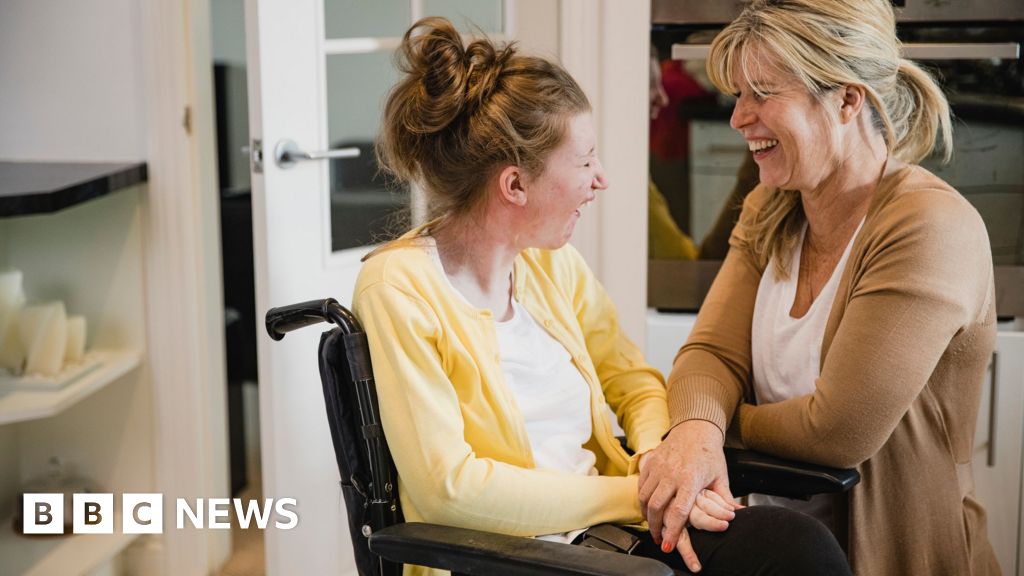Social Affairs Reporter
 Getty Images
Getty ImagesSupported housing, which helps vulnerable or disabled people live independently, is in crisis, an open letter signed by more than 170 organisations in the sector claims.
Services at one in three providers in England had to shut last year, adding to a total shortfall of about 325,000 places, says the letter, which will be delivered to Prime Minister Keir Starmer today. Signatories to it include Refuge, Age UK and the National Housing Federation (NHF).
Blaming cuts to council funding and rising costs, the NHF says a further one in three providers fear they may close unless the government pledges more money.
The government says supported housing is vital and it is focused on building more homes.
About half a million people in the UK currently live in supported housing, including young care leavers, army veterans, people with learning disabilities and those escaping homelessness or domestic abuse.
“Supported housing plays an indispensable role in cutting NHS waiting list backlogs, and reducing pressure on social care, temporary accommodation, and other vital public services,” the open letter says.
However, it says the future of supported housing is now at risk following “years of funding cuts” and that local authorities have now been forced to “decommission vital services”.
“Rising costs alongside reduced funding have rendered many services unviable, forcing many to close, while demand for supported housing continues to rise. The decision to increase employers’ National Insurance contributions has placed even further pressure on providers’ budgets.”
The organisations are calling for long-term increased funding for housing-related support of at least £1.6bn per year for councils and for supported homes to be among the 1.5 million new houses planned by the government.
“We recognise the vital role played by supported housing in helping vulnerable people to live independently and well, and the contribution it makes to tackling rough sleeping and timely hospital discharge,” a spokesperson for the Department for Housing, Communities and Local Government said.
The spokesperson said the government was putting £2bn into increasing social and affordable housebuilding in 2026-27, with further details to be set out in a long-term housing strategy later this year.
 Family picture
Family pictureProponents of austerity measures say tough funding choices need to be made to balance the UK’s finances.
However, Shaoxiong Liu says his family do not know what they would have done without a supported housing place for his son Jason.
Aged 39, Jason has autism, a learning disability and mental health challenges. As he grew older, this became increasingly unmanageable for his family. After falling ill, Jason was admitted to hospital with sepsis in 2017.
Due to his challenging behaviour and a condition that induces severe vomiting, he remained in hospital for months as they struggled to find somewhere long term that could accommodate his needs.
He was eventually placed with Advance Housing, where his family says Jason has flourished in the intervening eight years. His weight has risen from 35kg to 53kg, he can go on bus trips and attends social events organised by the housing provider.
“Jason’s behaviour is so much better now. He’s lived there so long and he’s happy there,” Mr Liu says. “Jason is an adult now and we are in our 70s, so his behaviour could be quite dangerous for us if he lived with us – we couldn’t look after him.”
The NHF says one in three providers in England it surveyed say they may have to stop providing services altogether, meaning the loss of 70,000 supported homes across the country.
In 2009, ringfenced council funding for housing-related support was removed. When council budgets were cut during austerity from 2010, funding was needed in other areas, meaning some councils had to cut supported housing services.
The NHF says that means there are now fewer supported homes than in 2007, including a net loss of 3,000 supported homes in the last three years. It calculates there is a total shortfall of up to 325,000 supported homes, based on unmet need.

















Leave a Reply